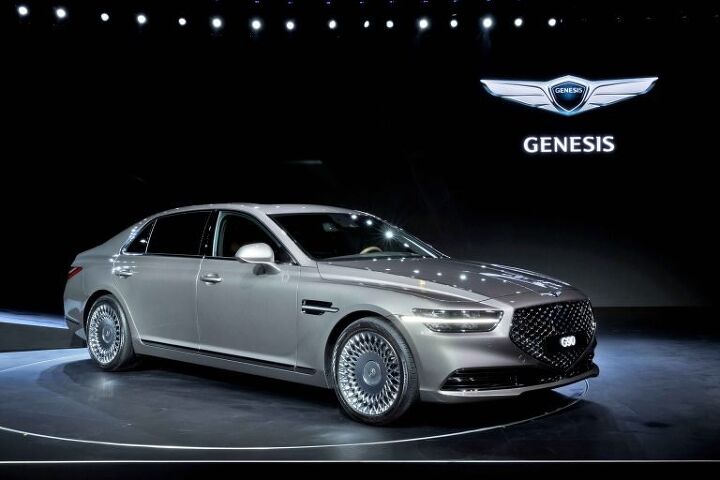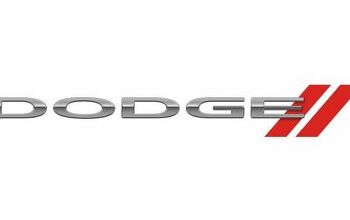Dodge Tops Them All in Initial Quality: J.D. Power

Come again? Yes, that’s the finding of J.D. Power’s latest Initial Quality Study, which examines consumer complaints over the first 90 days of vehicle ownership. As you can already see, there was plenty of disruption in the 2020 study.
Tesla, darling of both the tech and green crowds, finished dead last in the study, which ranks brands and individual models by problems experienced per 100 (PP100) vehicles. That finding comes with a caveat, however.
The electric automaker wasn’t officially ranked in the study, though that didn’t stop consumers from complaining to the tune of 250 PP100 — the worst showing of any mainstream automaker, by far. The industry average for the 2020 model year was a PP100 figure of 166.
“Unlike other manufacturers, Tesla doesn’t grant us permission to survey its owners in 15 states where it is required,” said Doug Betts, president of the automotive division at J.D. Power, in a statement. “However, we were able to collect a large enough sample of surveys from owners in the other 35 states and, from that base, we calculated Tesla’s score.”
Second-worst in the 2020 IQS was Land Rover, at 228 PP100.
Dodge’s score was 136 (up from the No. 8 sport last year), which happens to tie with a repeat chart-topper, Kia. Chevrolet and Ram shared the runner-up spot, with an average of 141 complaints apiece. For the fourth year, Genesis topped all premium brands and placed No. 3 in the overall study.
The IQS is not a barometer of long-term reliability. Indeed, a complaint can be just that — a gripe over something that you yourself might not have an issue with. In past years, complex or wonky infotainment systems have supercharged the J.D. Power complaint department, as buyers in the 55-plus age range aren’t always on the same tech page as automakers chasing the latest gee-whiz thing to add to their cabins.
A vehicle can be just fine mechanically, only to be hamstrung by its tech. At the same time, a vehicle, while not being especially great, can cop a respectable score by offering less high-tech niceties. And sometimes a model has just been on the market long enough to work out many of the bugs — a situation that could apply to Dodge, a brand whose vehicles all seem to have originated on drawing boards in the 2000s.
It seems that Ram got things right with its new full-size and heavy duty pickups. Going from 21st place to second place in the space of a year is a hell of a jump.
The other side of the coin is brands like Ford and Toyota, which both sank for 2020. The Blue Oval brand moved from fourth place in 2019 to 14th this year, placing below the industry average. Toyota sank from 10th to 16th place, tied with Honda (which placed No. 14 last year). Seven domestic brands (the aforementioned marques, plus Cadillac, Buick, GMC, and Jeep) ranked better than average this year.
Overall brand rankings are no guarantee that a specific vehicle will shine, however. On a segment-level basis, the Chevrolet Sonic and Malibu topped the IQS for small and midsize mainstream cars, while the Kia Forte took the compact class. Ford’s perennial pony car, the Mustang, earned the fewest complaints among sporty cars.
Speaking of Ford, the Ranger topped its midsize pickup rivals, while the new-for-2020 Super Duty walked away the victor in the heavy duty segment. Toyota’s ancient Tundra generated the fewest complaints among the full-size crowd.
In the SUV segments, only one American automaker — Cadillac — received top billing. The XT4 and Escalade cleaned up in the premium compact and full-size categories. Nissan’s Murano and Armada annoyed the least number of people in the midsize and large SUV fields, while Kia took top honors in the small and upper midsize SUV segments with its Soul and Sorento. The Hyundai Tucson ranked first in the compact SUV segment.
Best minivan for initial quality? The Kia Sedona, which sees a full revamp for 2021.
You’ll notice there’s no Dodges mentioned here, though that doesn’t mean the brand didn’t come close to beating challengers. The Charger was runner-up in the large car segment, while the Durango played second fiddle in the upper midsize SUV ranking.
[Image: Fiat Chrysler Automobiles, Genesis, Ford]

More by Steph Willems
Latest Car Reviews
Read moreLatest Product Reviews
Read moreRecent Comments
- CanadaCraig As an aside... you are so incredibly vulnerable as you're sitting there WAITING for you EV to charge. It freaks me out.
- Wjtinfwb My local Ford dealer would be better served if the entire facility was AI. At least AI won't be openly hostile and confrontational to your basic requests when making or servicing you 50k plus investment and maybe would return a phone call or two.
- Ras815 Tesla is going to make for one of those fantastic corporate case studies someday. They had it all, and all it took was an increasingly erratic CEO empowered to make a few terrible, unchallenged ideas to wreck it.
- Dave Holzman Golden2husky remember you from well over decade ago in these comments. If I wanted to have a screen name that reflected my canine companionship, I'd be BorderCollie as of about five years go. Life is definitely better with dogs.
- Dave Holzman You're right about that!





































Comments
Join the conversation
There is also a component of 'buyer behavior' inherent in the JD Power Initial Quality Study. (Because I am not *comparing* vehicles, just rating the one I took delivery on.) Extreme example: If you go back a decade or more, Buick used to rate very highly on this survey. At the time, Buick had relatively low conquest (high loyalty, lots of repeat buyers). [And they were actively working to reduce 'things gone wrong' on relatively 'proven' models.] If I were a lifetime Buick buyer, the Buick I bought at the time was nicer than the last one I had (and I didn't cross-shop the competition). So yes I reported very few problems at delivery. But this *doesn't* mean that a Lexus buyer sitting in the same Buick at the same point in time would have made the same observation.
My '18 Challenger has been, with the exception of some odd USB stick stereo glitches, flawless for the nearly two years I've had it.A couple of times a year, the stereo refuses to recognize there is a USB stick plugged in, or it can't read all of it. The stereo weirdness is resolved by just shutting the system down and turning it back on. It also has a weird thing it does when it's time to adjust for daylight savings time beginning or ending. It goes the wrong way, 2 hours, so in the Spring, instead of jumping ahead one hour, it went back 2 hours. It's kind of funny actually. No rattles, the paint is good, the seams are OK, not great, but OK, the thing runs great and the 8 speed automatic is pretty much perfection. Somehow, my car has made it through two winters in Toledo without hurting any suspension components. My older Challenger that went through 8 winters had to be fixed 7 times due to pothole damage. That's not the car's fault, it's just the awful Toledo streets, and living on one of the worst. It's finally been repaved and hopefully, a couple of years goes by before it goes to shit again. I have been in a lot of new FCA vehicles over the last 3 years and the problems have been very few and most all of the ones that weren't apparent before delivery have been confined to the digital dash, the uConnect, or stereo itself. Drivetrain issues? Well, none I can remember.